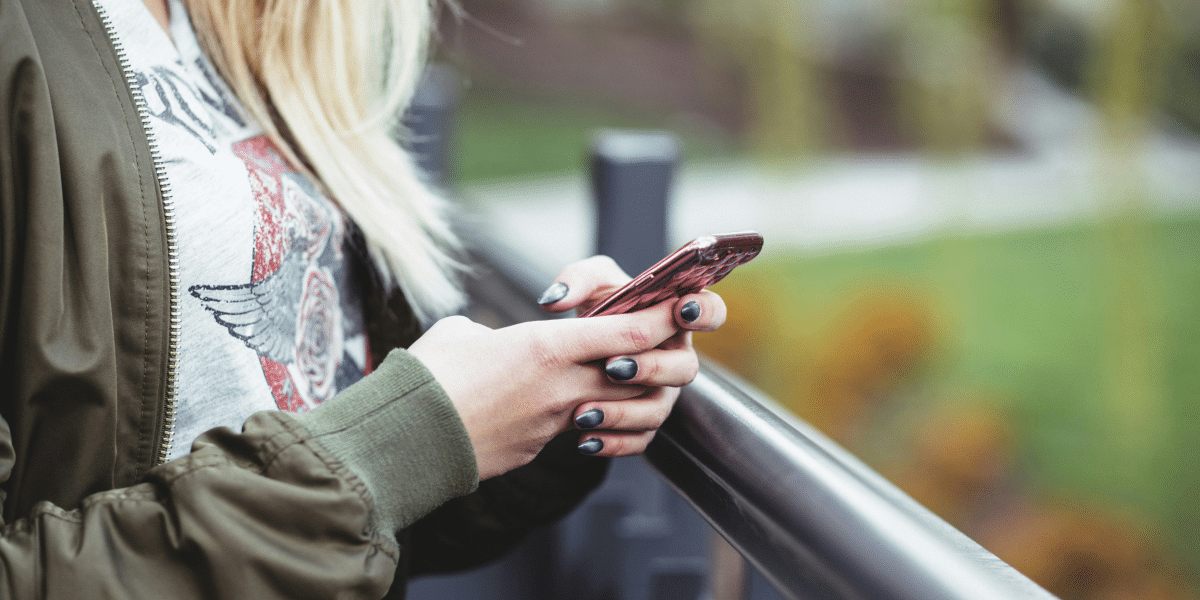By: Maria Williams
Among societal and cultural shifts over the decades, the role of technology in people’s lives is arguably one of the most prominent. Some commend it for opening a portal for friends, family, and even strangers from all over the world to connect with just a few clicks of a finger. Others are skeptical, expressing concerns about the daunting impact of such convenience, including surface-level relationships, the harrowing sense of confusion, and the alarming dangers lurking in the web’s depths.
As more studies have illuminated the negative impacts of smartphones, more and more experts, psychologists, advocates, and thought leaders are dedicated to raising awareness and implementing safer boundaries. For many, the key lies in reaching a holistic balance between authentic experiences and social media consumption, promoting a world where the wonders of the 21st century are enjoyed mindfully and without excess. For example, New York has recently announced plans for schools to ban phones to encourage students to be more present and engaged in their education.
Amy Vigliotti, seasoned psychologist and founder of SelfWorks, shares these sentiments. While the boundaries are especially important for children, ages 9-16, in what Dr.Jonathan Haidt labels the ‘critical window,’ Dr. Amy urges everyone to be more intentional with our technology use and reflect on the kind of relationship we have with our phones. In an era of overflowing digital exposure to contradictory information, it is imperative to surround ourselves with those who have the expertise and empathy to provide accurate, human-centric, positivity-driven advice.
To evoke real change, Dr. Jonathan Haidt wrote The Anxious Generation, a data-driven best-seller focusing on reframing the current discourse on technology’s psychological, sociological, cultural, and interpersonal impact on the lives of people, especially children. In that work, often considered an essential investigation into the collapse of youth mental well-being that started in the early 2010s, he highlights research that scrutinizes the global impact of ‘phone-based childhood’ trends.
Dr. Haidt’s book is a response to the dire needs of the population, inspired by the rising rates of anxiety, depression, suicide, and mental health struggles. As statistics show us, from 2009 to 2019, the number of high school students who reported persistent feelings of sadness increased from 26% to 37%. During that decade, suicidal behaviors increased by 44% and suicidal rates by 56%, highlighting the severity of the problem.
As Dr. Amy emphasizes, this is a problem permeating all generations, even with the opportunity to interact in real life it is common to see family and friends on their phones rather than interacting with one another. Moreover, the ability to be present and mindful is disrupted by the intrusiveness of our technology. The Wall Street Journal published that the average teenager receives 237 notifications daily.
Many argue that mobile phones, particularly in regard to social media, provide a sense of connection, increasing users’ feelings of belonging to the world. However, this connection is often colored by social comparison and the desire to be “liked.” Dr. Amy says, “The accessibility and connection of social media is only one side of the coin. Behind this idyllic yet skewed perception lies a realm of loneliness, surface-level interactions, and missing out on life’s experiences by rarely immersing ourselves in the present moment.”
Drawing from the wisdom imparted in Dr. Haidt’s book, Amy embarked on a journey of increasing society’s awareness and promoting a balanced approach toward technology. During her 10-year-long experience at the helm of SelfWorks, a mental health practice of field experts, Amy witnessed the evolution of patients’ mindsets, noticing a curious trend—despite the surging presence of social media, more and more patients are expressing frustration with such platforms. Many patients, for example, are disappointed in themselves for losing hours of time on social media platforms. “It can either strengthen connections and enrich lives or become a place where we get lost and fall into the abyss,” Dr. Amy claims.

Dr. Amy has seen that in her single patients there has been a move away from using dating apps and a preference towards establishing real world connections. There has also been a conscious move from many to lock away their smartphones at night to minimize disruptions during bed time.
Dr. Amy has also noticed that parents are intentionally educating their youth about the many risks associated with the digital world. For example, a ten-year-old child Dr. Amy was working with noticed unusual language from one of the players participating in their online game. This child told Dr. Amy and her parents about the player and after further investigating, it was revealed they were a catfish posing danger to the child.
Dr. Amy notes that the combination of education and healthy boundaries will reduce the negative social-emotional impact associated with smartphones. Walked by so many yet still uncharted, the territory of social media and the Internet is full of paradoxes that make it both appealing and scary. “Depending on how we interact with technology, it can either be a treasure trove of knowledge and inspiration or a source of confusion and misleading information or worse, pose significant threats,” adds Dr. Amy. “Like a car that can take us to great destinations, it still needs to be handled with care.”
“We owe it to ourselves to be intentional about how we live our lives,” she adds, reflecting on the global shift toward authenticity. As more and more people crave human connections, Dr. Amy Vigliotti sparks the uncomfortable conversations we all need to be having, encouraging everyone to delve deeper and ask themselves: What relationship do I really have with my phone?
Published by: Holy Minoza


















